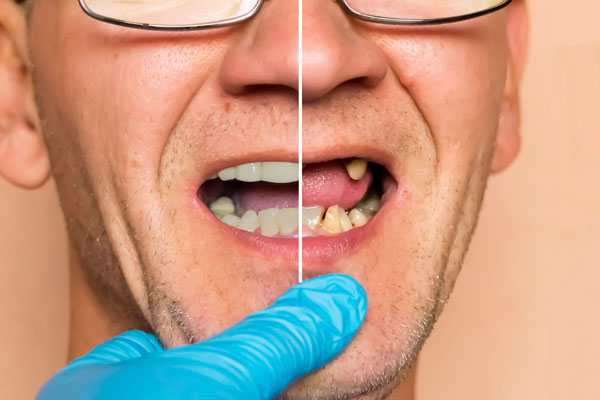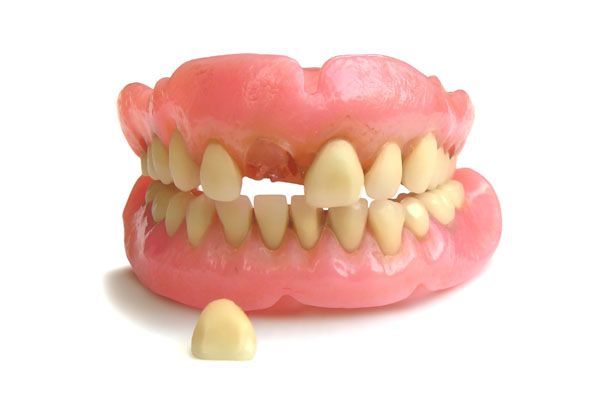Will a Cracked Tooth Have Nerve Damage?

Not all cases of a cracked tooth cause nerve damage, but nerve damage is possible if the cracked tooth is severe or if there is no treatment provided following the accident. The following is a review of how a cracked tooth can cause nerve damage and how to prevent further damage from happening after a cracked tooth occurs.
Assessing the risk of nerve damage after a cracked tooth
It is helpful to know how to properly assess the severity of a cracked tooth and take action to minimize the risk of nerve damage and other complications after dental trauma. Dealing with a cracked tooth properly can prevent the need for more expensive and invasive procedures.
How a cracked tooth can lead to nerve damage
Nerve damage refers to damage deep down toward the root of the tooth where the nerves are. In the root of the tooth, there is the pulp chamber with dental pulp, which contains nerves, blood vessels and more. This is why damage to the root of a tooth is often followed by increased pain and sensitivity. It is hard for a healthy tooth to suffer damage to the root, but a cracked tooth can leave the nerves of a tooth more exposed, particularly if the crack extends deeper or further down toward the gums.
When to seek dental treatment for a cracked tooth
Every instance of a cracked tooth requires treatment. However, the urgency of cracked tooth treatment varies depending on the cause. A minor crack that does not show serious symptoms can be managed at home, although a dental visit should be scheduled within a week or two. If the symptoms are severe — such as intolerable pain, severe gum bleeding and a crack toward the root — then an emergency visit is most likely necessary to prevent nerve damage and other, more severe concerns.
Tips for preventing nerve damage after a cracked tooth
The best way to prevent nerve damage after a cracked tooth is to visit a dentist as soon as possible for treatment and follow their aftercare instructions. However, you can also minimize the risk of nerve damage by keeping the mouth clean through good oral hygiene and drinking water regularly and avoiding consuming foods and drinks that are high in sugar. Using over-the-counter anti-inflammatory medication and a cold compress may help as well.
Common cracked tooth treatment options
Dentists most often recommend a restoration to treat a cracked tooth. The most common types of treatments for a cracked tooth include composite resin bonding, a dental crown, dental veneer or a bridge if the tooth is unable to be saved. They will also provide aftercare instructions and ways to avoid tooth damage in the future.
Schedule a consultation for a cracked tooth restoration
If you are concerned that your cracked tooth may lead to more serious concerns, such as nerve damage or tooth loss, then contact us today to start the treatment process. We can guide you through the treatment process, ensuring that all of your questions are answered along the way.
Request an appointment here: https://thechesterfielddentist.com or call Chesterfield Dentist at (804) 412-0867 for an appointment in our Chester office.
Check out what others are saying about our dental services on Yelp: Cracked Tooth in Chester, VA.
Recent Posts
A dentist’s job is to make sure your teeth stay in great health. For many patients, this means considering the benefits of dental restorations. Dentists recommend restorative procedures when a patient has a damaged, diseased, or missing tooth. These standard treatments stop the problem in its tracks, prevent additional injury and infection, and even provide…
The purpose of dental restorations is to replace permanent teeth that are lost. This can happen because of trauma to the tooth that renders it irreparable or decay that is so extensive that it requires extraction. There are several restoration options for replacing a missing tooth. Some are removable while others are permanently fixed in…
A healthy smile depends on more than daily brushing and flossing. If you are experiencing gum disease or severe plaque buildup, a deep teeth cleaning can restore your oral health. Unlike a standard dental cleaning, this treatment targets bacteria below the gumline and reduces the risk of serious oral health issues.Deep teeth cleaning, also known…
Multiple damaged or missing teeth can impair function and degrade the appearance of your smile. However, dental restorations can restore both the look and function of your teeth.There are many different types of dental restorations, and most of them can be used to address issues with multiple teeth. The type of restoration used for your…


